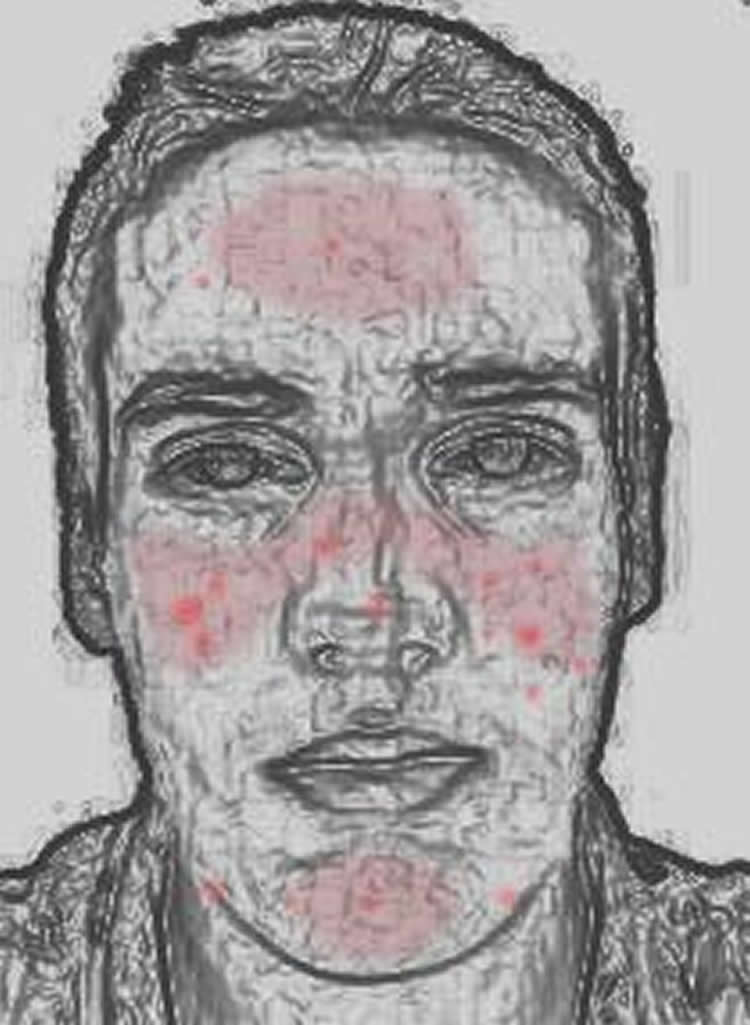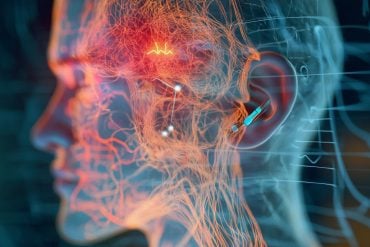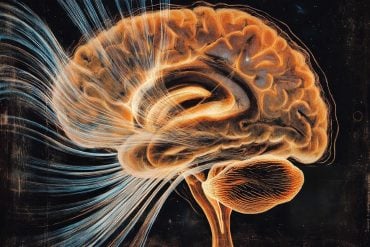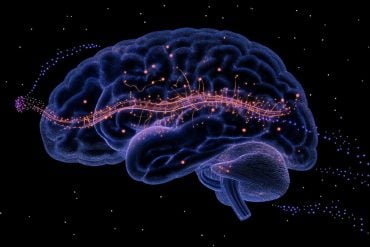A new study has uncovered an increased risk of dementia–in particular Alzheimer’s disease–in patients with rosacea. Importantly, the risk was highest in older patients and in patients where rosacea was diagnosed by a hospital dermatologist. The findings are published in the Annals of Neurology, a journal of the American Neurological Association and Child Neurology Society.
Rosacea is a common chronic inflammatory skin disorder that is characterized by elevated expression of certain proteins, including matrix metalloproteinases and antimicrobial peptides, that are also involved in various neurodegenerative disorders such as Alzheimer’s disease and other forms of dementia. Because of this potential link, a team led by Alexander Egeberg, MD, PhD, of University of Copenhagen, investigated the association between rosacea and dementia in Danish registers.

There were 5,591,718 Danish citizens aged 18 between 1997 to 2012, including 82,439 patients with rosacea. Individuals were followed until December 31, 2012, migration, a diagnosis of dementia, or death from any cause, whichever came first. A total of 99,040 individuals developed dementia, of which 29,193 were diagnosed with Alzheimer’s disease. After adjustments for potential confounding factors, patients with rosacea had a 7 percent increased risk of dementia and a 25 percent increased risk of Alzheimer’s disease compared with individuals without rosacea. Stratified by sex, women had a 28 percent increased risk of Alzheimer’s disease and men had a 16 percent increased risk if they had rosacea. When results were stratified by age at study entry, the risk of Alzheimer’s disease was only significantly increased in individuals 60 years (who had a 20 percent increased risk). When analyses were limited to patients with a hospital dermatologist diagnosis of rosacea only, the increased risks of dementia and Alzheimer’s disease were 42 percent and 92 percent, respectively.
“A subtype of patients have prominent neurological symptoms such as burning and stinging pain in the skin, migraines, and neuropsychiatric symptoms, suggesting a link between rosacea and neurological diseases,” explained Dr. Egeberg. “Indeed, emerging evidence suggests that rosacea may be linked with neurological disorders including Parkinson’s disease and now also Alzheimer’s disease. There are certain mechanistic overlaps between rosacea and Alzheimer’s disease that may explain the observed association, albeit the pathogenic links between these conditions are still unclear.”
Dr. Egeberg noted that it is important for patients to remember that having rosacea does not necessarily mean that they will develop dementia; however, the results may provide new insights into the link between the skin and neurodegenerative disorders. Further research is warranted to examine whether treating rosacea may also modify patients’ risk of developing dementia.
Funding: In addition to Huth and Gallant, co-authors of the paper are Wendy de Heer, Frederic Theunissen and Thomas Griffiths, all at UC Berkeley. The research was funded by the National Science Foundation.
Source: Dawn Peters – Wiley
Image Source: The image is in the public domain.
Original Research: Abstract for “Patients with rosacea have increased risk of dementia” by Alexander Egeberg MD, Peter R. Hansen MD, Gunnar H. Gislason MD andJacob P. Thyssen MD in Annals of Neurology. Published online April 28 2016 doi:10.1002/ana.24645
Abstract
Patients with rosacea have increased risk of dementia
Objective
Rosacea is a common chronic inflammatory skin disorder where upregulation of matrix metalloproteinases (MMPs) and antimicrobial peptides (AMPs) is observed. Notably, inflammation, MMPs, and AMPs are also involved in the etiopathogenesis of neurodegenerative disorders including certain forms of dementia such as Alzheimer disease (AD). Based on several clinical observations, we investigated the association between rosacea and dementia, including AD in Danish registers.
Methods
All Danish citizens aged ≥18 years between January 1, 1997 and December 31, 2012 were linked at the individual level through administrative registers. Cox regression was used to calculate unadjusted and adjusted hazard ratios (HRs).
Results
The study comprised a total of 5,591,718 individuals, including 82,439 patients with rosacea. A total of 99,040 individuals developed dementia (any form) in the study period, of whom 29,193 were diagnosed with AD. The adjusted HRs of dementia and AD were 1.07 (95% confidence interval [CI] = 1.01–1.14), and 1.25 (95% CI = 1.14–1.37), respectively, in patients with rosacea. Stratified by sex, the HRs of AD were 1.28 (95% CI = 1.15–1.45) and 1.16 (95% CI = 1.00–1.35) in women and men, respectively. When results were stratified by age at study entry, the risk of AD was only significantly increased in individuals ≥60 years old (adjusted HR = 1.20, 95% CI = 1.08–1.32). When analyses were limited to patients with a hospital dermatologist diagnosis of rosacea only, the adjusted HRs of dementia and AD were 1.42 (95% CI = 1.17–1.72) and 1.92 (95% CI = 1.44–2.58), respectively.
Interpretation
Rosacea is significantly associated with dementia, particularly AD. Increased focus on symptoms of cognitive dysfunction in older patients with rosacea may be relevant.
“Patients with rosacea have increased risk of dementia” by Alexander Egeberg MD, Peter R. Hansen MD, Gunnar H. Gislason MD andJacob P. Thyssen MD in Annals of Neurology. Published online April 28 2016 doi:10.1002/ana.24645






